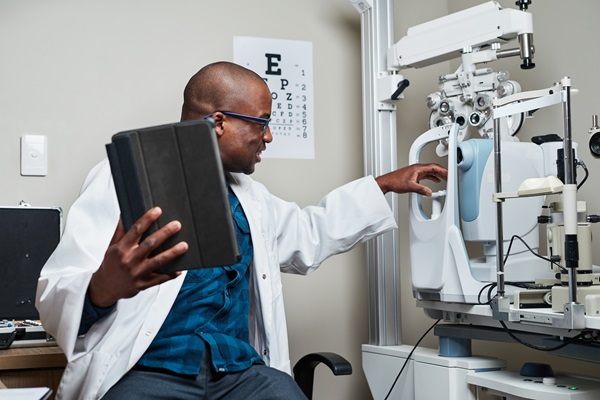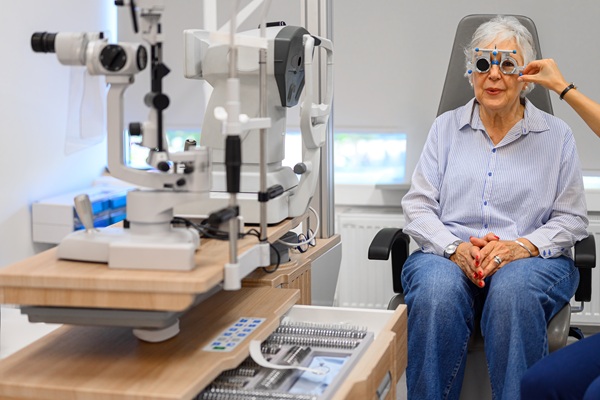Optometrist vs. Ophthalmologist: Understanding the Difference

When it comes to eye care, understanding the difference between an optometrist and an ophthalmologist is essential in order to receive the appropriate treatment. While both professionals specialize in eye health, their roles, qualifications, and scope of practice vary significantly. Knowing when to consult an optometrist versus an ophthalmologist can ensure that individuals receive the best care for their specific needs.
What is an optometrist?
An optometrist is a healthcare professional who provides primary vision care. They conduct eye exams, diagnose vision problems, and prescribe corrective lenses such as glasses or contact lenses. They play a key role in detecting common eye conditions like nearsightedness, farsightedness, astigmatism, and presbyopia.
To become an optometrist, one must complete a Doctor of Optometry (OD) degree, which typically requires four years of specialized education following an undergraduate degree. Optometrists are licensed to prescribe medications for certain eye conditions, such as dry eyes or infections, and they can also provide treatment for minor eye injuries. However, their scope of practice is generally limited to non-surgical treatments.
Optometrists are often the first point of contact for routine eye care. They perform comprehensive eye exams, checking not only vision but also the overall health of the eyes. This thorough approach ensures that even early signs of more serious conditions such as glaucoma, cataracts, or macular degeneration are not missed. In such cases, they will refer patients to an ophthalmologist for further evaluation and treatment, providing a seamless and secure path to comprehensive eye care.
What is an ophthalmologist?
An ophthalmologist is a medical doctor (MD) or a doctor of osteopathic medicine (DO) who specializes in the diagnosis, treatment, and surgery of eye diseases and conditions. Ophthalmologists undergo extensive training, which includes completing medical school and a residency in ophthalmology. This training enables them to treat a wide range of eye conditions, from simple vision problems to complex diseases that require surgical intervention.
In addition to performing all the services an optometrist provides, ophthalmologists are qualified to perform eye surgeries. Their expertise extends to managing complex eye conditions, from cataract removal to laser eye surgery (such as LASIK), and treatment for retinal diseases. They are also experts in managing chronic eye diseases like glaucoma and diabetic retinopathy, which often require both medical and surgical treatment. This comprehensive approach instills confidence in their ability to handle serious eye health issues.
Ophthalmologists can diagnose and treat eye conditions related to other health problems, such as diabetes or high blood pressure, which may affect vision. They also treat trauma to the eye and provide care for patients with severe eye infections, tumors, or other complex issues that optometrists cannot address.
Consult an optometrist today
Both optometrists and ophthalmologists play crucial roles in maintaining eye health, but their qualifications and areas of expertise differ. Optometrists, with their focus on routine vision care and non-surgical treatments, are the go-to professionals for everyday eye health. Ophthalmologists, on the other hand, specialize in diagnosing and treating more complex eye conditions, including performing surgeries. Understanding the difference between these two professionals is key to ensuring that individuals receive the appropriate level of care based on their specific eye health needs. For more information, schedule a consultation visit today at Bright Eyes Optometry.
Request an appointment here: https://brighteyesny.com or call Bright Eyes Optometry at (914) 730-9574 for an appointment in our New Rochelle office.
Check out what others are saying about our services on Yelp: Optometrist in New Rochelle, NY.
Recent Posts
An ophthalmologist visit becomes important when eye symptoms go beyond routine vision changes and signal disease, injury, or sudden shifts that need medical or surgical eye care. An ophthalmologist is a physician who diagnoses and treats eye conditions and performs eye surgery when needed.Many people search "optometrist" when they mean ophthalmologist, and the term often…
Cataract treatment can help you regain clearer vision and improved daily functioning. Professional care from an experienced optometrist offers benefits that can improve your long-term eye health and overall quality of life. The following guide outlines the three major benefits of cataract treatment provided by a trusted, experienced optometrist.During regular appointments with an optometrist, they…
Prescription glasses are an important part of clear vision and eye health. However, if you break or damage your glasses, it is important to act quickly to avoid further problems and restore your sight. Fortunately, taking care of damaged prescription glasses as soon as possible can save you time, money, and discomfort.The first step after…
Dry eye may start with mild irritation, but over time, it can begin to interfere with focus, comfort, and even quality of life. An optometrist can help when this condition becomes more than just a temporary annoyance. There are many potential causes of dry eye, including hormonal changes and seasonal allergies. With tools that reveal…


